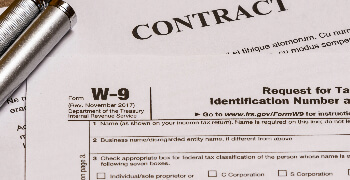
Retail delivery fees under fire in 2025
As more lawmakers show interest in retail delivery fees, opposition to them is mounting. This article explores current legislative efforts and their potential impact on tax compliance for businesses.
Colorado and Minnesota are the only two states with a retail delivery fee (RDF) today, but several other states are eyeing them. RDFs are being considered by lawmakers in more than 10 states, including Hawaii, Indiana, Maryland, Mississippi, Nebraska, Nevada, New York, Ohio, Oregon, Vermont, and Washington.
At the same time, there are efforts to amend or repeal the Colorado and Minnesota RDFs. Proposed fees on retail delivery are also facing pushback.
Efforts to repeal or amend existing retail delivery fees
Bill to repeal Colorado’s retail delivery fee
On January 29, 2025, a bill seeking to repeal the Colorado retail delivery fee was introduced in the Colorado Legislature. While the legislation was indefinitely postponed (i.e., killed) on February 18, the fact that it was introduced is telling: The delivery tax is polarizing.
Scott Peterson, VP of Government Relations at Avalara, isn’t surprised House Bill 1144 died. He points out that Colorado is facing a potential $750 million budget gap for 2026, and repealing the delivery fee would have cost the state $111.7 million in state revenue in fiscal year 2025–2026.
Revenue losses for fiscal year 2026–2027 would have been even greater, as the RDF will be adjusted for inflation.
Minnesota proposes retail delivery fee changes
SF 1058, HF 183, and HF 5 would eliminate the Minnesota retail delivery fee as of July 1, 2025, if enacted. Two other bills, SF 41 and its companion HF 1104, would keep the RDF but remove it from clothing starting July 1, 2025.
That Minnesota’s retail delivery fee currently applies to certain clothing sales is challenging for retailers because most clothing is exempt from Minnesota sales tax. Clothing retailers that have never been required to collect or remit Minnesota sales tax may now need to pay the retail delivery fee and report it on a Minnesota retail delivery fee return.
Legislation introduced on March 3 would exclude delivery of aggregate materials from RDF.
We’ll have to wait and see what the Legislature decides. Minnesota is expected to have a $3.8 billion budget surplus for fiscal year 2024–2025, which ends June 30, 2025. However, the state is already projecting a budget deficit for fiscal year 2028–2029.
Local retail delivery fee struck from Indiana bill
A proposed Indiana retail delivery fee was struck from House Bill 1461 shortly after being introduced. The initial version of Indiana HB 1461 would have allowed counties to adopt a county option retail delivery fee of 50 cents to one dollar. The second version of the bill did not include any mention of a retail delivery fee.
What’s next for retail delivery fees?
Retailers oppose the delivery tax
Amazon, DoorDash, Google, Grubhub, Instacart, and nearly 30 other businesses participating in a tech industry policy coalition called the Chamber of Progress are actively opposing online delivery taxes. They’ve created a website, nodoorsteptax.com, to spread their message.
They’re not alone. A representative from the National Federation of Independent Businesses (NFIB) testified against Indiana’s local RDF proposal and applauded the state for striking that section from HB 1461.
States are still interested in retail delivery fees
Nevertheless, legislation seeking to establish an RDF is moving forward in Hawaii, Maryland, New York, and Vermont. Some Hawaii lawmakers strongly favor such a fee while others strongly oppose it. The Vermont bill is with the Committee on Transportation. The New York retail delivery fee is also in committee.
Even Oregon is studying a potential retail delivery fee. In a December 2024 Report to the Oregon Legislative Assembly, the Road User Fee Task Force admitted its members were “generally intrigued by retail delivery fees.” Yet it also noted that Colorado and Minnesota have existing sales and use tax systems while Oregon does not. “Whether a retail delivery fee is subject to Oregon constitutional restrictions … would need to be explored,” it observed. Local retail delivery fees could be an option.
In 2024, Nebraska, Ohio, and Washington each considered implementing a fee on retail deliveries. To date, none have introduced a retail delivery fee bill in 2025.
If more states implement retail delivery fees, they’ll become a greater compliance burden for businesses. Tax compliance is already challenging for many retailers subject to the Colorado and Minnesota delivery taxes because the laws are different and impose different requirements on businesses.
Fortunately, automation allows businesses to streamline the collection and remittance of retail delivery fees. Avalara is helping many companies comply with the Colorado and Minnesota delivery fees. Should more states adopt them, we’ll help businesses comply with them too.
Download the Avalara Tax Changes 2025 report to learn more about retail delivery fees and other tax legislative changes.

Your competitors live by this annual report
Trusted by professionals, this valuable resource simplifies complex topics with clarity and insight.
Stay up to date
Sign up for our free newsletter and stay up to date with the latest tax news.











